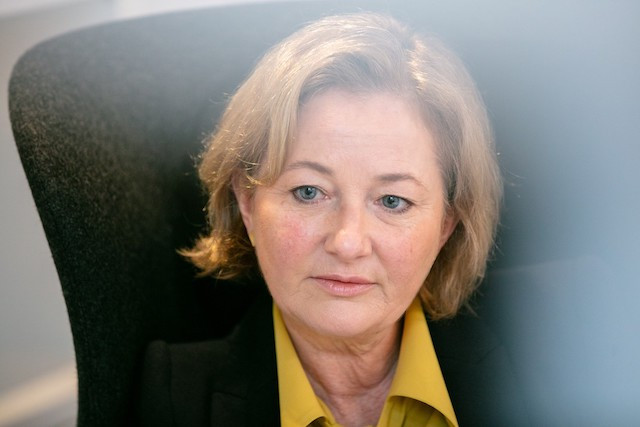After three weeks of sick leave after a sudden illness, Lenert (LSAP) retook the reins of the health ministry on 18 April.
Did you manage to unplug during your three weeks of rest?
Paulette Lenert: Of convalescence! It’s not exactly the same. I hear: ah, you look well rested! Did you have a good holiday? But I was sick for a whole week. For the first two weeks, I wasn’t well. I slept a lot, I blocked everything out. The third week, I was getting ready [to return].
Did you anticipate this exhaustion?
I felt it. I had been feeling ill for weeks. You can feel it when it’s too much. It accumulates, but it’s nice to say to oneself: you should take a little break--it’s never the right time.
How do you find this time in a pandemic?
With the pandemic, you have to be very disciplined to really make a cut, because there are emergencies every day. It's all about dealing with the pandemic, getting informed, knowing what's new--every day there are new things. You have to follow the work, organise, be present in the Chamber of Deputies.
And we are questioned a lot. We receive a mind-blowing record of parliamentary questions. We issue a press release almost every day. And we have to deal with up to ten media requests a day--that's huge compared to a normal period. However, we do not have ready-made answers. Each time, we have to mobilise people, who are also expected to do their own work.
It's possible to manage that over two to three months, but over time... I took stock a bit, it's incredible, it's almost unmanageable. We must set limits. The day only has 24 hours, like everyone else’s.
Is the health ministry understaffed?
To manage a pandemic like this is temporary. We increased the ranks. But, at one point, we also stopped, because taking on new people, you are always in the process of integrating them and that takes time, too. So, at a certain point, you have to say to yourself: here, this is the team, we have to function with it.
Have you decided to reorganise to avoid overwork in future?
I try to take a one-day break on the weekend--which I already missed last weekend. But normally it's okay, that's something I can do. I also try to organise my meals, for example, having a real meal at least three times a week. Little things like that.
Did the teams function well during your absence?
They worked well; I was aware of that. So, when I wasn't there, I wasn't panicking either. If I died tomorrow, someone would take over, no-one is irreplaceable.
But I realised it when I came back, because I was a little rested, and then you see it: everyone is tired in the ministry. We have quite a few cases of burn-out, sick leave...
Do you sometimes regret taking on this portfolio?
No, I'm not someone who regrets. If I don’t enjoy something, I leave it, I'm not married for life to this job.
You are not a victim of your profession. People pity me. But I chose this. I said yes at some point, so I assume [the responsibility]. Other ministers left in the midst of the pandemic. If it gets too much, the day when, from a health point of view, I can't take it, I will stop, that's clear.
Are you getting used to the political game?
Yes, I’ve gotten used to it. The whole thing is that it came at an exceptional pace. The first year that I was minister [in the ministries of development cooperation and consumer protection, editor's note] was good, I did not complain at all about these political games.
Now that I'm on the front line all the time, it's heavy. But this is accelerated learning. It can only get better afterwards!
And it is normal to discuss, it is characteristic of a democracy, and it is the characteristic of a parliament to question, to challenge ideas. From that point of view, it's not something that shocks me or that I complain about. It's part of the job.
What people remarked upon, as they probably noticed at the beginning, is that I was new to this environment--less so now. It's starting to go well, it's okay! And you know, if we compare with countries abroad, it's still aboveboard. There are cultures where it can be more aggressive or more violent than here.
Once the pandemic is over, do you plan to stay in this ministry?
Yes, the challenges are enormous, especially with the Gesondheetsdësch [a discussion group on the future of Luxembourg’s healthcare sector, editor's note]. We are sorely lacking the time to commit fully to this. It is a great frustration. I'm just waiting for the pandemic to end so that I can work in-depth on this topic.
This interview was originally published in French on Paperjam. It has been translated and edited for Delano.
